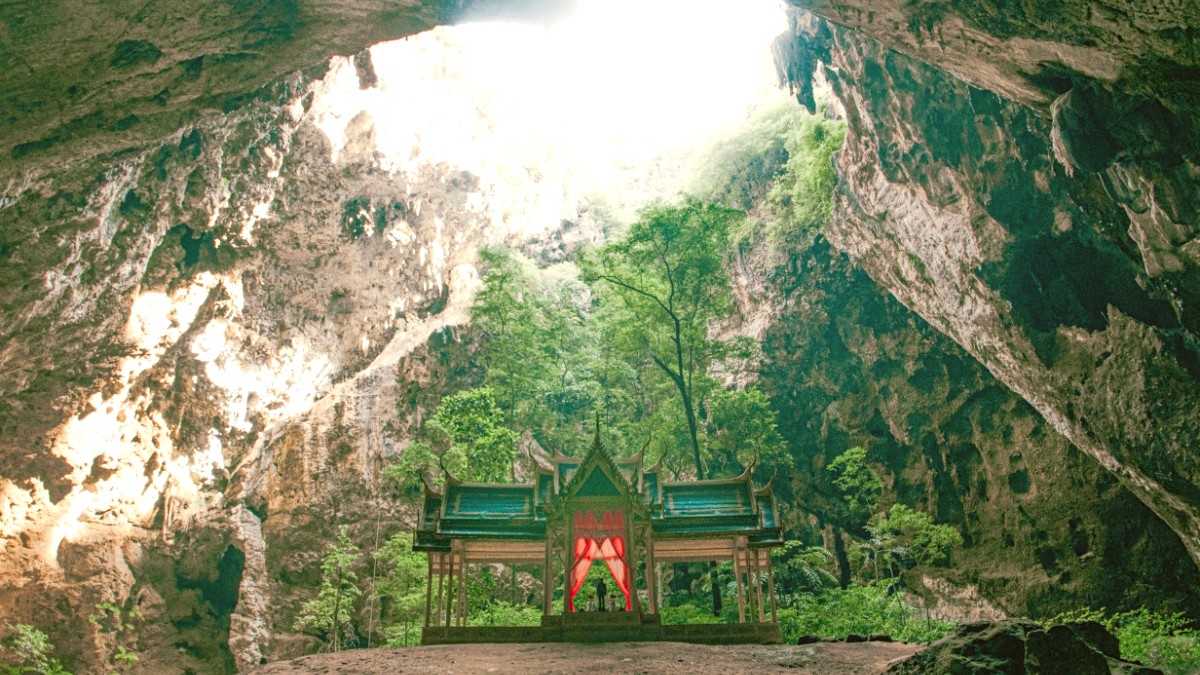
Nakhon Ratchasima Province, Thailand
Budget Traveler: (e.g., backpackers) 1,000 - 1,800 THB (approximately $28 - $50 USD). This covers guesthouses, basic bungalows, national park campsites (300-600 THB), street food or local eateries (200-400 THB), shared songthaews or scooter rental (100-300 THB), and national park entry (400 THB).
Mid-range Traveler: 1,800 - 4,000 THB (approximately $50 - $110 USD). This covers mid-range resorts or boutique hotels (800-2,000 THB), mid-range restaurants (400-800 THB), private transfers or Grab (300-800 THB), and park entry with guided tours or vineyard visits (400-800 THB).
Accommodation: Basic Guesthouse/Bungalow: 300-600 THB per night. Mid-range Resort/Boutique Hotel: 800-2,500 THB per night. Luxury Resort/Villa: 2,500 - 10,000+ THB per night. National Park Campsite: 50-100 THB per person per night.
Meals: Street Food/Local Dish: 40-80 THB. Mid-range Restaurant Meal: 150-400 THB. Fine Dining/Hotel Restaurant: 500-1,500+ THB per dish/meal. Transportation (within Khao Yai area): Motorbike Rental: 250-400 THB per day. Songthaew from Pak Chong to Park Entrance: 60-80 THB per person. Private Taxi/Grab (short distance): 100-300 THB. Full-day private car with driver: 1,500-2,500 THB. Attractions: Khao Yai National Park Entrance: 400 THB (foreign adult). Wineries (e.g., PB Valley): Tours typically 300-500 THB. Farm/Theme Park Entrances: 100-300 THB.
Khao Yai and Pak Chong are generally safe. Violent crime against tourists stays rare.
Pickpocketing can occur in crowded areas, but less common here than in major cities. Keep valuables secure.
Beware of scams, specifically overcharging or misleading information, more common in major tourist hubs.
Be aware of seasonal risks.
Rainy season (June-October) brings localized flooding, especially near rivers. Some roads might close.
Possible in hilly areas during prolonged heavy rain. Park authorities will close affected trails or roads.
Maintain a safe distance from wild animals.
Magnificent but dangerous if provoked or if you come between a mother and her calves. Follow park ranger instructions.
Present in Thailand. Seek immediate medical attention if any animal bites or scratches you. Clean the wound thoroughly.
Eat Local: Choose street food and local Thai restaurants outside of the more tourist-focused areas. These offer authentic and inexpensive meals. Pak Chong Night Market is a budget-friendly option for dinner. Use Public Transport: In Pak Chong, shared songthaews cost much less than private taxis for getting around town.
Rent a Scooter: If you have comfort and experience with driving a scooter, renting one gives flexibility and cost savings for exploring the wider Khao Yai area. Remember to carry an International Driving Permit. Stay Outside the Park: Accommodation immediately inside Khao Yai National Park is limited and often more expensive. Staying in Pak Chong or Khao Yai's peripheral areas gives more budget-friendly options. Travel in Shoulder or Low Season: Accommodation rates often get reduced, and you encounter fewer crowds during these times.
Bring sunscreen, insect repellent, and basic first aid supplies from home; these items cost more in tourist areas.
Withdraw larger amounts of cash at ATMs to minimize transaction fees.
Look for exchange booths in Pak Chong for better rates than those at the airport.
Compare prices for tours and activities, consider self-guided options for certain park features.
Many local vendors prefer cash, especially for small purchases and street food.
Prepare for potential health concerns and understand local safety practices.
No specific vaccinations are generally a condition for entry to Thailand from most countries. An exception applies if you are arriving from a yellow fever endemic area, in which case a Yellow Fever vaccination certificate is a condition. Consult your doctor or a travel clinic at least 4-6 weeks before your trip for recommended vaccinations, like Hepatitis A and Typhoid. For longer stays, Hepatitis B, Rabies, and Japanese Encephalitis may also appear as suggestions.
Drinking Water: Tap water in Thailand does not offer safe drinking. Always consume Bottled water. Consider a Water filter bottle for hiking. Food Hygiene: Generally good in reputable restaurants and popular street food stalls. Look for places with clear signs of cleanliness. Avoid food sitting uncovered for long periods.
Crime statistics and safety concerns by neighborhood: Khao Yai and Pak Chong are generally safe for tourists. Violent crime against tourists stays rare. Petty crime: Pickpocketing can occur in crowded tourist areas, but it is less common here than in major cities. Keep your valuables secure and out of sight. Fraud: Be wary of scams, specifically those involving overcharging or misleading information. These typically do not involve violence but attempt to exploit tourists financially.